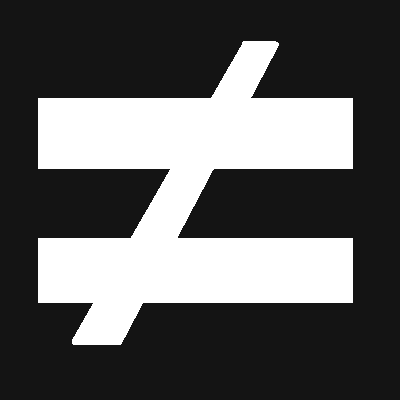From high theory to political activism can be a long road. But the path is clear from the philosophy-of-math skeptics in the mid-1900s to the postmodernists in the late 1900s to the math-denying activists in the early 2000s.
Here for example is philosopher A. J. Ayer puncturing the objectivist balloon:
“the principles of logic and mathematics are true universally simply because we never allow them to be anything else.”
That’s from his bombshell Language, Truth, and Logic (1936). (The contemporary reaction to Ayer’s book.)
But note the subjectivist implication: If the principles of mathematics’ truth depends on what we allow, then we could allow them to be something else. In which case, we could decide that 2 + 2 ≠ 4.
Chapter 3 of Explaining Postmodernism: Skepticism and Socialism from Rousseau to Foucault, quotes Ayer, Schlick, Quine and the others of that generation and draws the implications for the generation of Kuhn, Foucault, and Rorty, thus setting up this generation’s math-denialists.

Mathematics when applied is as part of a model. I do knot know if a model is true or false – but I do know good ones can predict things. That 2 + 2 = 4 follows from the definition of numbers eg Peano’s Axioms. The truth or otherwise of the axioms is the same as the models they are used in – in other words – beats me if such language is even appropriate. That is a carefull answer – in everyday language it of course is accepted as true, like many things are accepted as true even though a carefull analysis shows it is otherwise. So is science a search for truth, even though it is really just models? I think it is, and profound truth at that. However a justification of such a statement would require a carefull analysis of exactly what ‘truth’ is. For me truth is what the models tell us – but we have to accept them as ‘tentative’ since as further research happens it can change. Is it converging to some ‘ultimate truth’ that we are slowly approaching. Again, blowed if I know, although my instincts say yes.
I think Ayer is right under the assumption that “2+2=4” is true by definition. We define the meaning of the symbols “2”, “+”, “=” and “4” in such a way that the statement “2+2=4” is true in the same way “A bachelor is an unmarried man.”
Of course, there is room to pushback, as Mr. Hobba pointed out by appealing to predictive power of certain definitions (“models” in logic/mathematics talk).
But there is even more room to pushback against Ayer. Even putting predictive power aside, not every model is the same. If I said “2” refers to Mr. Hobba and “4” referred to me, the statement would be nonsensical barring some really creative interpretations of “+” and “=”.
Besides, trying to interpret one statement in isolation is a nonstarter. To convince his audience that we are really at liberty to decide 2+2 doesn’t equal 4, Ayer seems to have the burden of proof to show us a non-trivial and intelligible language where “2+2=4” is interpreted to be false.
Finally, I wonder if Ayer got Mathematics completely wrong just like the logical positivists and formalists he was responding to. Take the meaning of the symbol “=”, for instance. Ayer could talk about how we could have interpreted it differently to refer to a different relationship than identity, just like the word “identity” could have referred to strawberry instead of the mathematical relationship, identity. But this is a red-herring because the mathematician would stop Ayer and say “I don’t care what “=” means in your interpretation. I am talking about the only one-on-one relationship where every individual is related to itself and only to itself.”
So, Platonism seeps back in no matter how fast we bail it out of the boat. We could have decided that “2+2=4” by deciding “2”, “+”, “=” and “4” meant different things than they do in our current language. But no matter what we do, we can’t make 2+2 not 4.
Did we (a) define it that way because it’s true (objectivism), or (b) make it true because we defined it that way (subjectivism)?
In fact, “the principles of logic and mathematics are true universally simply because” they reflect reality. Logic and math describe the universe the way it actually is. Mankind has not the slightest ability to alter them. A. J. Ayer and his philosophical buddies can NOT make “2 + 2 ≠ 4.